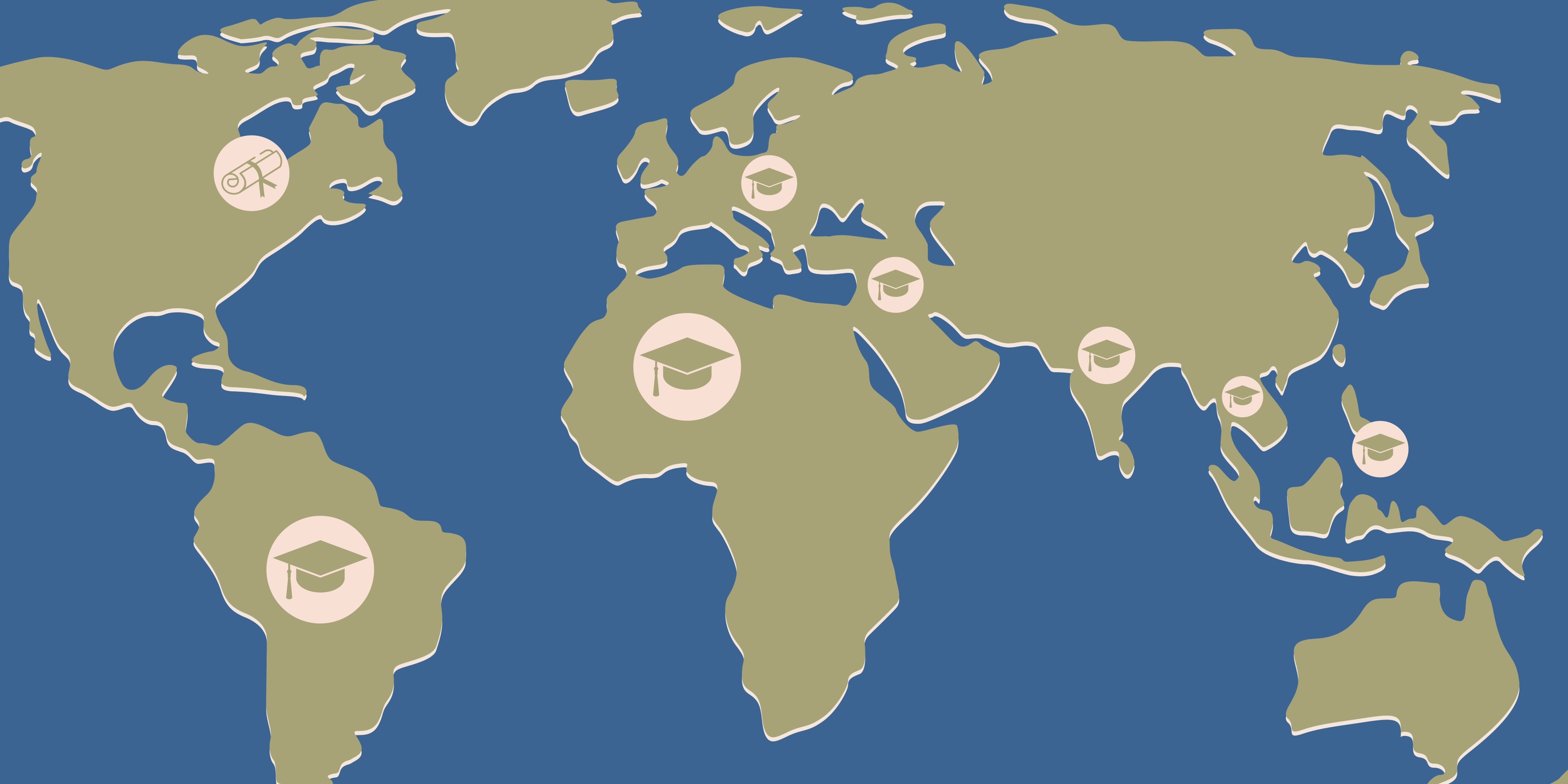DePaul’s international students pursue higher education from all over the world, in spite of the pandemic.
Up at night and asleep during the day, DePaul sophomore Andrew Yu Chang is now a self-proclaimed nocturnal. Due to the 13-hour time difference, the Philippine-based student found it more sensible to work his schedule around Chicago’s time zone. Otherwise, deadlines would be nothing but a blur.
An Open Doors report with data from the National Center for Education Statistics shows that there were 710,210 international students enrolled in U.S. higher education institutions during the 2020-2021 academic year.
In the same academic year, there were 1,058 enrolled international students at DePaul — with Yu Chang being one of them.
However, because of COVID-19, he decided to stay in the Philippines and study remotely from home.
“Obviously, the situation of COVID, of me [potentially] getting sick, it raises the concern,” the animation major said. “If I were to take classes abroad, I knew that it would be online.”
Director of International Admissions Dino Pruccoli saw this pattern of international students’ initial hesitation in enrolling abroad during the pandemic.
“When remote learning became the norm, and the students realized that the pandemic was not slowing down, they accepted that if they wanted to start university studies, they would need to do them online,” he wrote.
To make up for campus tours and in-person meetings with the admissions team, Yu Chang had to do extensive research before committing to DePaul.
“I wasn’t able to travel and see these places in person,” he said. “If anything, the pandemic made it easier just ‘cause you’re learning about these schools at the comfort of your own home.”
“Best time” to pursue higher education
The 2021-2022 academic year started to look more promising for prospective international students as travel regulations loosened and cases in the U.S. began to decline over the summer.
Ly Bui, an international student from Vietnam, started her business analytics master’s program this past fall.
Even during the pandemic, Bui was determined to move to Chicago from South Dakota where she obtained her degree in business administration.
“I can see there will be a lot of opportunities if I pursue the master’s program here because DePaul is right in the middle of the financial district,” she said. “The recognition is really well in the area.”
With this in mind, she applied to DePaul as soon as she completed her optional practical training (OPT), an employment opportunity for students with an F-1 visa.
“Getting my master’s degree is always on my list,” she said. “If I go back to Vietnam right now, I probably won’t be able to come back to the States … so I just did it.”
Similar to Bui, marketing graduate student Disha Rajan also considered the pandemic as her go-signal to pursue higher education — even if she initially wanted to work for another year or two.
“I think this is the best time to go for [my] master’s. Everyone is moving out. The work environment is kind of stagnant, so it’s better if I go and pursue my master’s right now and by the time I finish it, probably the economy [and overall] situation will be better,” she said.
While preparing her applications and documents, her home country of India became the new epicenter of the pandemic — having a seven-day average of 392,000 reported cases during the country’s second wave.
Graduating with a degree in journalism from Christ University in Bengaluru, the capital of India’s southern state, Rajan spent her time freelancing as a writer and social media marketer during the lockdown when the delta variant was initially discovered.
Shortly before India reached the third wave, Rajan finally booked a flight and packed her bags. She landed at O’Hare Airport on December 30 last year, four days before her first quarter at DePaul.

Disha Rajan visits Navy Pier. Photo courtesy of Disha Rajan.
During winter quarter, Rajan took online classes and only visited campus once. This spring, she’s taking an in-person class for the first time.
“The main adjustment that I have to make for in-person classes is, of course, the commuting. Since I stay in the suburbs, I take the Metra to travel to the city and walk from the station,” she wrote. “At least, traveling to the city and walking through the skyscrapers and [the] lake is an exhilarating experience each Tuesday.”
Looking ahead
Bouncing back from pandemic losses, market intelligence firm HolonIQ expects an increase of international student enrollment by 2030.
“The pandemic brought international education out into the public discourse from once being considered a niche phenomenon to now being better understood by the general public as a critical component of higher education and skilled workforce supply, as well as a significant economic pillar for many of the world’s major economies,” the firm reports.
At DePaul, Pruccoli and his colleagues have resumed in-person recruitment.
“We look at our applicant pool and past applications to determine where we’re going to recruit,” he wrote. “This spring, our team will be visiting Pakistan, India, Brazil and a number of countries in the Middle East.”
Rajan offers advice for students interested in an international education.
“If you wanna study abroad, then make sure you start early with the admission process because it’s going to take a lot of time … [particularly] during the pandemic with visa processing,” Rajan said. “It’s better if you start at least six to seven months prior than whatever session or quarter you’re applying for.”
Header image by Annie Gidionsen




NO COMMENT